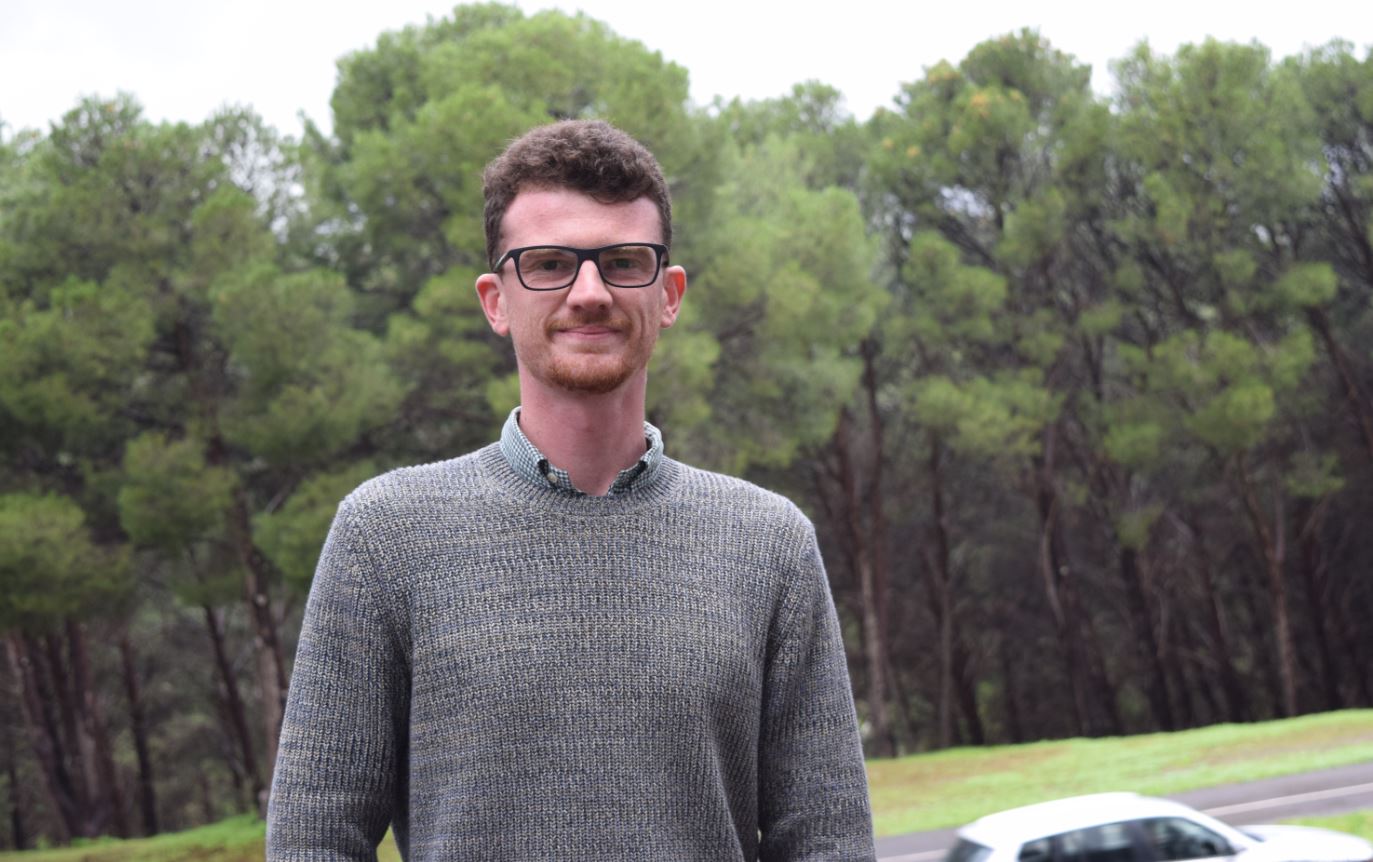
Andrew Blyth, PhD candidate, CMPH
Andrew’s PhD is investigating how growth hormones interact with their receptors in the body and what biological pathways they activate; his aim is to better understand how they function and then use that knowledge to contribute to the development of drug therapies that target this hormone in cancer.
What led you to a PhD?
It’s been what I imagine is a fairly linear pathway! I’m one of those people who has always had an interest in scientific research. There’s something really exciting about experimentation, and using your knowledge to find new ways of approaching a problem and developing a solution.
I did a Bachelor of Biotechnology here and the research labs I studied in really triggered my interest in research. Doing research in a medical biochemistry lab during my Honours year gave me a taste of what a PhD would entail and I seriously considered directly progressing into one. But I got this incredible opportunity to gain industry experience at an internationally-renowned pharmaceutical company, manufacturing a protein based drug given to patients during chemotherapy to boost their white blood cell count.
It was this experience that cemented my decision because I was able to see firsthand how a PhD would assist me to pursue a career in this area. My mentor, Richard, also helped me to understand the value of a PhD and how that knowledge can contribute to scientific developments in industry.
Why did you choose Flinders? If you ask around amongst those who know, you soon learn that the science programs at Flinders have a good reputation. Also, the medical research being conducted at Flinders was particularly enticing, and I soon found out that, even from very early on, I was learning from and interacting with all these academics who are leaders in the field.
Where do you spend most of your time doing your PhD?
Our lab is located in the Flinders Medical Centre but we have equipment located all over the University that we frequently use.
How do you juggle and prioritise everything? It’s always difficult to balance study, research, work and private life! The ideal would be to have harmony between each of them, but of course that never happens. More often than not, I find myself prioritising what seems most critical at the time. Sometimes in our lab, experiments can take days or weeks at a time, and other times my PhD can be all-consuming. My strategy for some balance is to allocate time on the weekends to do things that are completely un-PhD related, like running, playing sport, and catching-up with friends and family.
How do you see your PhD preparing you for your future career?
A PhD provides you with a very useful set of skills, some specific to the project and others more inherent in completing a PhD. What I find most valuable is that I’m learning how to think critically, and developing high-level analytical and problem-solving skills among many other skills. These are all going to be highly useful for a whole range of careers in academia, research and industry.
Andrew’s supervisors are Professor Briony Forbes and Professor Janni Petersen.

